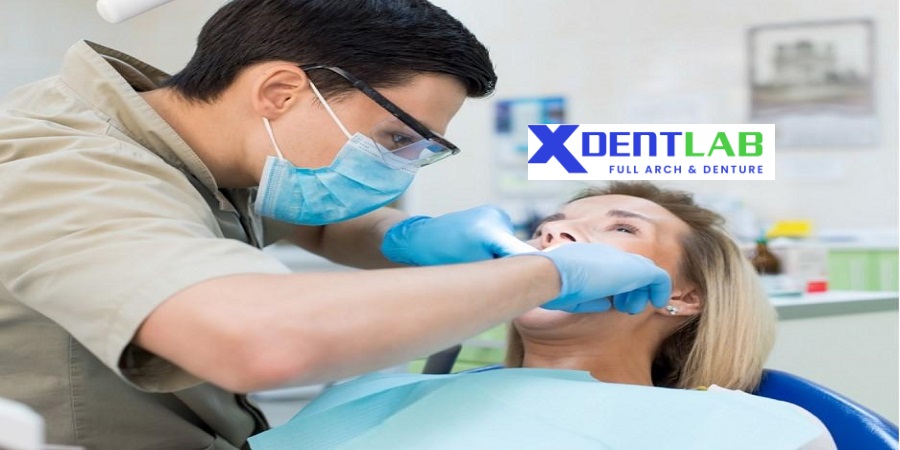Vietnam’s Dental Laboratories xdentlab.com . Dental laboratories play a crucial role in the dental industry by providing essential support to dental practices, particularly in the fabrication of dental prosthetics, crowns, bridges, and other restorations. These facilities serve a pivotal function in the overall dental care process, as they are responsible for transforming dental prescriptions into functional and aesthetically pleasing dental products. In Vietnam, dental laboratories have become increasingly important as the country’s dental industry experiences robust growth and development.
Introduction to Dental Laboratories in Vietnam
The demand for dental services in Vietnam has risen significantly over the past decade, driven by a growing awareness of oral health and the aesthetic needs of the population. This growth can be attributed to various factors, including improvements in healthcare accessibility, advances in dental technology, and a burgeoning middle class that is more willing to invest in their health and appearance. Consequently, dental laboratories are under pressure to provide high-quality restorations quickly and efficiently to meet the increasing volumes of work from dental professionals.
Moreover, the importance of dental laboratories extends beyond mere production. They play a significant role in collaboration with dentists to ensure that the prosthetics fit comfortably and meet the patients’ individual requirements. This collaboration fosters a deeper understanding of the materials and techniques used in the manufacturing process, ensuring that the results meet the highest standards of quality. As dentists continue to rely on dental laboratories for their expertise in creating custom solutions, it is vital that these laboratories adhere to strict regulations and invest in modern technology to deliver exceptional products.
In summary, the dental laboratory sector in Vietnam is vital to enhancing the quality of dental care services. By supplying dental professionals with expertly crafted restorations, these laboratories contribute significantly to overall oral health and patient satisfaction in the region.
Types of Dental Laboratories in Vietnam
In Vietnam, the dental laboratory landscape is diverse, accommodating a variety of services tailored to meet the needs of dental professionals and patients alike. The primary categories of dental laboratories include commercial laboratories, in-house labs, and specialized facilities, each serving distinct functions within the dental ecosystem.
Commercial laboratories are typically larger facilities that handle a high volume of cases. These labs often provide a wide range of services, including crown and bridge fabrication, dentures, and orthodontic appliances. They are equipped with advanced technology and a skilled workforce to ensure rapid turnaround times and a consistent quality of work. !These commercial entities cater to numerous dental practices, allowing them to outsource their laboratory needs while minimizing overhead costs associated with maintaining an in-house lab.
On the other hand, in-house labs are integral parts of larger dental practices or clinics. These laboratories are designed to allow dentists to oversee and control the quality and timeliness of their dental restoration work. In-house facilities greatly enhance collaboration between dentists and technicians, enabling prompt adjustments and personalized patient care. Although they typically handle fewer cases than commercial labs, in-house labs foster closer relationships with their patients, which is beneficial for complex or customized dental solutions.
Specialized facilities represent yet another vital component of Vietnam’s dental laboratory sector. These labs focus on specific niches, such as orthodontics, prosthodontics, or implants. By honing in on particular areas, specialized laboratories can offer superior expertise and cutting-edge innovation in their services. This focus often translates to higher fidelity restorations and devices, particularly for complex cases requiring advanced materials and techniques.
Each type of dental laboratory in Vietnam plays a unique role in ensuring that dentists have access to the resources necessary to provide optimal care, illustrating the intricacies of the dental market in the country.
Technologies and Equipment Used in Vietnamese Dental Laboratories
Vietnam’s dental laboratories have experienced significant advancements in recent years, adopting cutting-edge technologies and modern equipment to enhance their productivity and service quality. One of the most notable innovations is the integration of Computer-Aided Design and Computer-Aided Manufacturing (CAD/CAM) systems. These systems allow for the precise design and fabrication of dental restorations, such as crowns and bridges, utilizing computer algorithms that streamline the entire process. The incorporation of CAD/CAM technology not only improves the accuracy of dental products but also minimizes the turnaround time for patients, providing efficient solutions for dental professionals.
Another game-changer in the dental laboratory landscape is 3D printing. This additive manufacturing technology enables the creation of highly customized dental products, ranging from orthodontic aligners to dental models. With 3D printing, labs can produce intricate structures that were previously challenging to achieve using traditional methods. This innovation significantly reduces material waste and allows for more complex designs, elevating the standard of care provided to patients.
Digital scanning has also emerged as a vital tool in modern Vietnamese dental laboratories. Utilizing intraoral scanners, technicians are able to capture detailed images of patients’ teeth and gums, leading to more accurate impressions without the discomfort of traditional molds. Digital scans can be easily integrated into CAD/CAM systems, further streamlining the workflow and enhancing the overall patient experience.
Despite these advancements, traditional methods are still prevalent in many laboratories across Vietnam. Techniques such as lost-wax casting and manual articulator usage continue to play a significant role in the fabrication of certain dental appliances. The combination of traditional and modern techniques fosters a balanced approach, ensuring that dental laboratories can cater to diverse client needs while maintaining high standards of quality and customization.
Contact service home page : xdentlab.com
